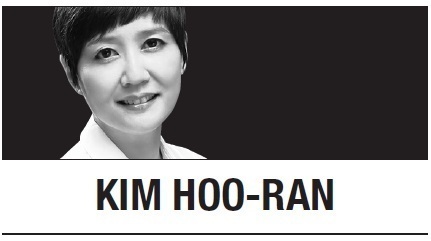
The novel coronavirus has landed at my doorsteps. Literally. Almost 60 days into the COVID-19 outbreak, my mobile phone screeched an alert with a message that two people in my neighborhood were confirmed with the respiratory illness.
My mind raced, trying to retrace my steps over the past several days hoping that our paths did not cross. Following the patients’ movements posted on my district’s website, I let out a sigh of relief. It was a close call.
This has become the new normal. Getting multiple alerts on the mobile about new confirmed cases, checking to see if we may have come into contact, getting daily updates of confirmed cases and number of deaths.
Checking with family members on the latest development in their corner of the world has become a new routine. A family member learned that he would undergo stricter medical questioning upon arrival from the UK as the South Korean government was set to implement special monitoring of passengers arriving from several European countries. Another family member texted that her college in the US was going to conduct classes online until the end of the school year and that dorms would be shut down.
People I know have been impacted by the viral outbreak in some way: Couples who canceled their weddings last minute, mothers anxious about their children in Daegu, a hairdresser who, speaking through a mask, said that with so little business, he wasn’t sure if he should stay open.
Social distancing is taking a toll as well. I have not been out socially or for work in more than a month. Instead of celebrating a friend’s birthday over lunch, I sent her an emoticon of a cake with a candle on top. Virtually all exchanges take place via texts as face-to-face meetings are discouraged. In-person interviews have become a rarity, replaced by email interviews and online video press conferences.
I hope this is not the new normal. The fear of the previously unknown virus, for which there is no vaccine, has people on edge, gripped by fear, mentally stressed and preoccupied with survival. Privacy concerns are largely bypassed for the public good. We react with justified anger at patients for going about their lives before they became numbered cases. We are at risk of losing the compassion and empathy that make us human.
The government has made a few blunders as the crisis quickly unfolded. The Blue House did not observe the principle of “under promise, over deliver,” crucial to expectation management, when President Moon Jae-in said, still in the early days of the spread, that the crisis would soon be over, according to Kim Hoh, founder of The Lab h, a public strategy firm. “Messaging should be about what’s happening, what we are doing and what you need to do,” said Kim, who warned against the government offering self-evaluations. The inconsistent messaging on the use of masks confused and infuriated the public and, more importantly, resulted in a shortage of the masks that are critical for medical professionals.
Yet, overall, the authorities have responded to the viral outbreak with transparency and speed and should be lauded for their efforts. There are no reports of panic buying or general chaos. Koreans have rallied to support the people of Daegu, who are bravely bearing the brunt of the COVID-19 outbreak with calm and dignity. Most of all, the medical professionals and infectious disease control experts at the forefront of the fight against the disease should be commended for their hard work and sacrifice. Koreans deserve to give themselves a pat on the back, for now.
Even when the end of the pandemic is declared, the repercussions of this unprecedented crisis will linger. As we hope for the return of normalcy, we must prepare for the long days ahead, armed with love and kindness.
By Kim Hoo-ran (
khooran@heraldcorp.com)
--
The writer is a culture desk editor at The Korea Herald. -- Ed.








![[Today’s K-pop] Blackpink’s Jennie, Lisa invited to Coachella as solo acts](http://res.heraldm.com/phpwas/restmb_idxmake.php?idx=644&simg=/content/image/2024/11/21/20241121050099_0.jpg)